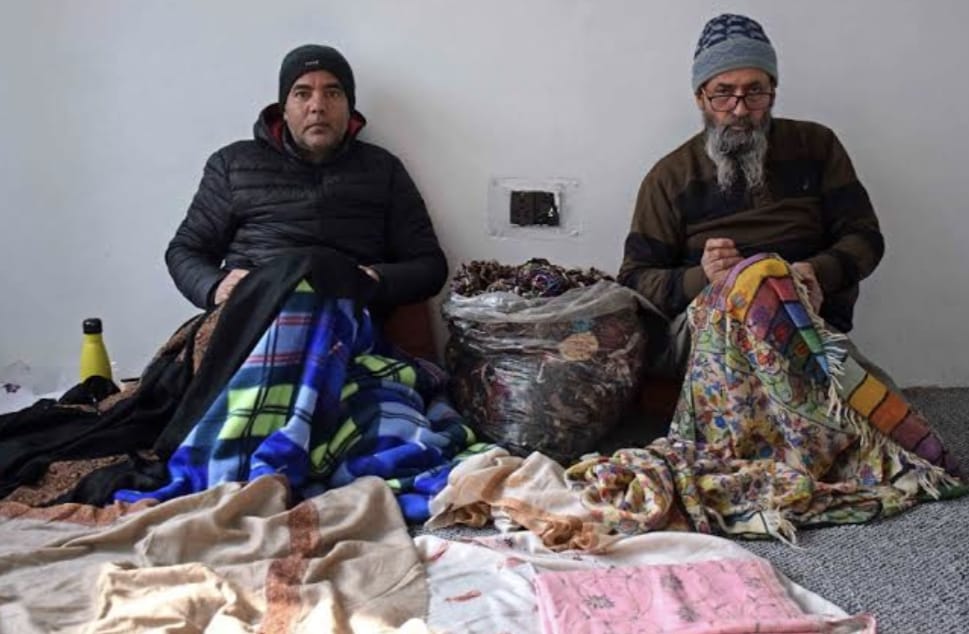
Two artisans in Srinagar have spent decades preserving the ancient Kashmiri craft of Rafugari, an intricate art of repairing high-end shawls, which is on the brink of extinction.
Mushtaq Ahmed Jan (47) and Shabir Ahmed Makhdoomi (61), residents of Khawjapora, Nowshehra, have been practising this craft for 30 and 40 years, respectively.
Speaking to the news agency—Kashmir News Observer (KNO), Mushtaq lamented that this painstaking art, which requires work from dawn to dusk, no longer appeals to the younger generation.
“A single shawl can cost lakhs and is often passed down through generations, becoming a family treasure. If damaged, these heirlooms cannot simply be discarded. They are brought to us; we mend them and restore their beauty,” he said.
Describing their meticulous process, Mushtaq said, “We study the shawl’s pattern and colour, source matching threads, often from the shawl itself, and repair it so seamlessly that the damage is undetectable.” However, he added that the lack of interest from younger generations is disheartening.
Mushtaq said he has trained many artisans who now work independently but added that teenagers today shy away from learning Rafugari.
“This art requires sharp eyesight and commitment, but no one is willing to invest the time and effort anymore,” he said.
Shabir Ahmed, who has been practising Rafugari for over four decades, said.
“Thirty to forty years ago, there were many rafugars, but now, barely 30 skilled artisans remain.When we pass away, this craft will vanish with us,” he said, adding, “It’s a backbreaking job which requires long hours in a crumbled position. Even I wouldn’t want my son to take it up.”
Despite the decline in artisans, demand for Rafugari has surged. “There are tens of thousands of heirloom shawls across India. Even if one percent of these require repair, it creates a vast market that only Kashmiri rafugars can serve. Unfortunately, the number of skilled workers is dwindling,” Shabir lamented.
The artisans also criticised the rampant sale of duplicate threads in the market, saying that genuine artisans can easily distinguish between authentic and fake materials.
They said Mahmood Ahmad Shah, the former Director of Handicrafts, was the only official who genuinely supported artisans and worked for the revival of Kashmiri handicrafts—(KNO)




